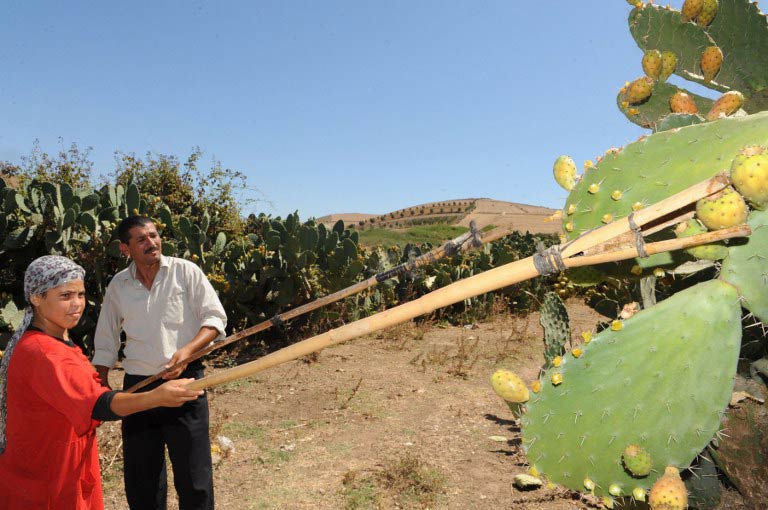In 2011, hoping to escape the brouhaha of the city, I retreated for a few weeks to an isolated inn somewhere in the Atlas Mountains of Morocco. Each morning, I was offered a basket of delicious red apples as a gift from the locals. Delighted by their warm hospitality, I insisted on meeting them and thanking them in person. Finally I was taken to Miloud, the owner of a surrounding farm. Judging from the size of the land, I expected to walk through the doors of an ostentatious residence. However, I was shocked by the deplorable state of his mud house and miserable living conditions.
Puzzled by Miloud’s situation, I mobilised a small group of students and we conducted a field survey to decrypt how the owner of paradisiac prairies receives such minimal benefits. Our findings highlighted how the market prices were five times higher than those charged by the village farmers. Miloud, who had never left his small town, totally ignored most of the market realities which in turn made him an easy prey for unscrupulous middlemen who atrociously exploited his ignorance.
I returned to the village determined to get Miloud to increase his selling prices. The notion of change terrified the man because he feared losing his clientele under the impression that all his neighbors would continue to charge low prices. After a long and heated discussion about his situation and that of his children, Miloud finally agreed to gather the farmers of the region in his house with the goal of finding a reasonable solution to put an end to the clear exploitation they were experiencing.
The feelings of fear and inexplicable dread were shared by all the farmers, but they were concerned about the future of their families and hoped to offer them a better life. After paying a listening ear to their insecurities, I suggested that they put their harvest in the same basket, decide together on the selling price and never let anyone exploit them again. With the help of business students, we developed an action plan for the farmers’ co-operative Rhamna, and stayed in touch with them during their first two years of operation.
Today Rhamna co-operative has developed several added-value products and benefited from the support of the NIHD (National Initiative for Human Development). As a result, in less than two years the income of the farmers has jumped substantially by a staggering 70%.

Miloud’s success story inspired me to start Fair Farming, an initiative that promotes fair trade and helps smallholder farmers derive maximum benefit from their products. Since its inauguration Fair Farming has partnered with several agricultural co-operatives and impacted hundreds of farmers throughout the country. Fair Farming has been awarded by the Global Changemakers program (British Council), and was adopted by We Are Family Foundation under its Three Dot Dash initiative.
Miloud’s continuous phone calls to update me on the success of Rhamna co-operative made me realise that farmers are not as isolated as I thought. They all had access to mobile phones that could serve as a door to crucial information. During the two years I worked with Miloud’s farming co-operative I continuously updated them on weather forecasts, market prices and best farming practices from the Ministry of Agriculture using SMS or the classic phone calls. The access to basic information helped the farmers take smarter decisions and thus boost their harvest and revenue.
I quickly realised the key role access to relevant information could play in curbing poverty in Morocco and other developing countries. Using a combination of SMS and voicemail we have, over the last few months, been able to reach to hundreds of farmers as a prototype for a scaling-up project that would hopefully benefit millions of farmers in the country.
Looking back at the modest initiative I started two years ago always reminds me that small actions can and will change the world around us for the better.
Adib Ayay has a passion for agriculture and business. In 2011, at the age of 17, he founded Fair Farming, a student-run organisation that seeks to help farmers boost their revenue using mobile technology. He is one of 10 young Africans shortlisted to be a One Young World delegate at this year’s summit. At this event, the M&G’s Trevor Ncube will be chairing a session on African media and what Africans think of their journalists. To share your views, complete this short survey.